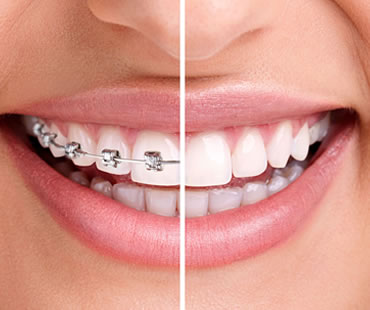
Nearly two million people worldwide have discovered Invisalign, the latest technology for improving smiles. Treatment involves wearing a series of customized clear plastic aligners to gently shift teeth into better positions. This revolutionary method is appealing to patients because it eliminates some of the aspects that people dislike about traditional orthodontic solutions.
Perhaps the most obvious benefit to Invisalign is that the aligners are invisible. The clear plastic makes the trays almost undetectable in your smile. This gives patients the confidence to smile throughout treatment instead of being embarrassed by a mouth full of metal.
You can remove your Invisalign aligners at any time. Although for best success they should be worn at least 20 hours per day, they should be removed while eating or performing oral hygiene tasks. This means that there are no diet restrictions during treatment, and maintenance is simple because it involves normal brushing and flossing.
Invisalign aligners are comfortable since there are no wires or brackets that might poke or tear your skin. They also are safer than some other orthodontic options when playing sports or other activities. Invisalign aligners gently move teeth so there is typically less pressure or pain during treatment than with traditional braces.
The aligners are customized for every patient to treat your specific issues. Different sets of aligners are provided for adults, adolescents and children, plus different sets are worn during each stage of straightening. This personalized solution means that treatment is very precise, and it is even created and monitored using special computer software to increase the accuracy of treatment. Also, many patients find that the duration of treatment is less for Invisalign. The average treatment time is often about one year, as long as you wear the aligners as recommended.
With all of the advantages that Invisalign offers, it’s easy to understand why it has become such a popular choice in orthodontic treatment. If you’re interested in seeing if Invisalign is right for you, schedule a consultation with a dental professional who is trained and qualified in providing this type of treatment.
If you live in the Meriden area contact us today

It’s part of life that your teeth will likely become dull and yellowed as you age and consume foods that contribute to teeth staining. However, you don’t have to go through life with a tainted smile. There are many options available these days for either at-home or professional teeth whitening. If you choose to brighten your smile, you’ll want to make sure you maintain the look as long as possible. Eating certain foods can help you naturally achieve the goal of a dazzling smile.
Citrus fruits:
Lemons, oranges, pineapples and other citrus fruits contain natural acids that help whiten teeth. Their tart flavor also promotes saliva in your mouth, which creates a natural rinse and polish over your teeth.
Strawberries:
Rich in vitamin C, strawberries can help prevent gum inflammation and other periodontal issues. They also contain malic acid as well as ellagitannins, which are antioxidants that help banish bacteria in your mouth.
Apples:
Chewing crunchy fruit like apples helps scrub your teeth to get rid of plaque and germs. Apples also have lots of malic acid, an ingredient in some toothpastes, which increases saliva to clean teeth and remove stains.
Pineapples:
An extra benefit of pineapples is bromelain, a compound that has cleansing and anti-inflammatory properties. It helps eliminate unsightly stains naturally.
Cheese:
Mineral ingredients like calcium and phosphorus give cheese an edge in strengthening your teeth. Cheese also contains protein that protects tooth enamel, and lactic acid that protects against tooth decay. Hard cheeses promote saliva production to clean your teeth.
Broccoli:
High in fiber, broccoli can help lower inflammation in your mouth and body. Crunching on raw broccoli cleans and polishes your teeth, and the iron content helps protect your teeth from damaging bacteria and acid.
Schedule your appointment at our Meriden dental office
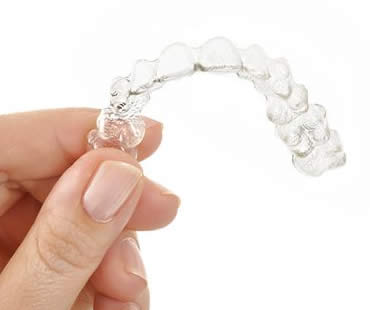
One of the newest ways to spruce up your look is to correct your teeth with Invisalign. This is an orthodontic solution that allows your teeth to be straightened without having to wear unsightly or embarrassing traditional braces. Invisalign allows you to improve your smile without affecting your eating habits, oral care routine, or self-esteem throughout the treatment process.
Description:
A series of customized plastic aligners are created to wear over your teeth to gradually move them into better position. You are able to see your treatment plan on a computer before treatment even begins, and your dentist monitors progress during checkups to make sure things are changing as desired. The clear aligners with Invisalign are popular because they are nearly invisible, can be removed for cleaning and eating, and are comfortable without causing irritation.
Correction:
Invisalign corrects various dental issues, including crowded teeth, gaps, overbites, underbites, or crossbites. Dentists often advise wearing retainers after treatment to ensure that teeth remain in their new position.
Process:
Once you select a dentist for your Invisalign treatment, an examination and discussion of goals will determine if this type of orthodontics is right for you. If you are a good candidate, a mold will be made of your teeth as well as a three dimensional image to help your dentist determine your treatment plan.
Maintenance:
Invisalign aligners are easily cleaned when removed from your mouth with gentle brushing and rinsing. You can perform your normal oral hygiene routine before returning the aligners to your mouth.
If you need a dentist in Meriden contact us today
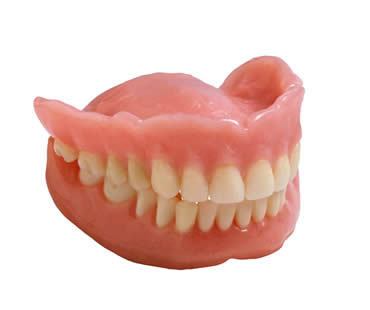
If you have lost all of your teeth or just a few, you are probably a good candidate for dentures. Dentures, also known as removable prosthodontics, are used for the dental restoration or replacement of missing or broken teeth. You may want to consider dentures if any of the following apply to your situation:
- You have very few remaining teeth and they are in poor condition.
- You have suffered bone loss in your mouth so severe it precludes you from considering dental implants.
- You have advanced gum disease that has resulted in the loss of multiple teeth.
- You have lost many teeth, and your remaining teeth are suffering from decay and receding gums.
- You are committed to practicing excellent oral hygiene in order to take good care of your dentures.
You may not be a good candidate for dentures if any of the following apply:
- You are a young patient whose jawbone has not fully developed.
- You grind or clench your teeth.
- You have a sensitive gag reflex.
- You are a smoker.
If you feel you are a good candidate for dentures, your dentist will evaluate the health of your teeth and gums and determine if full or partial dentures are the best choice for you. There are many factors to consider when having dentures placed, and your dental professional can help you make a decision that fits your needs and lifestyle. If you wish to regain oral functionality and improve your smile, dentures may be your answer to once again enjoying a full set of beautiful, natural looking teeth.
Schedule your appointment at our Meriden dental office
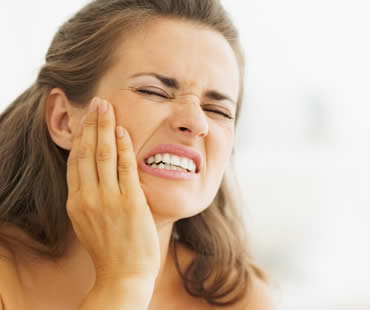
Sometimes an injury or tooth pain can occur suddenly, and immediate dental care may be required. It’s not always obvious when a problem needs emergency care, but some dental emergencies do need to be treated quickly to avoid infections or permanent damage. Here’s a guide to situations that are usually considered dental emergencies.
- Cracked or broken tooth – contact your dentist immediately. Rinse your mouth with water and hold a cold compress to the affected area until you can get to your dentist’s office.
- Excessive bleeding with lip or tongue bite – clean the area and use a cold compress. Go to the emergency room if the bleeding is severe or won’t stop.
- Jaw injury – if you think you may have broken your jaw, apply a cold pack and immediately to your dentist’s office or the emergency room.
- Knocked out tooth –rinse the root of the lost tooth if it’s dirty. Do not scrub or removed any tissue left on the tooth. Try reinserting the tooth into its socket, but if that isn’t successful, see your dentist right away. Placing the lost tooth in milk may help preserve the tooth until you can get professional help.
- Loose tooth – see your dentist immediately if one of your teeth is loosened. Take over-the-counter pain reliever if needed, and apply a cold compress.
- Lost crown or filling – place the crown or filling in a safe place and contact your dentist. To decrease sensitivity, you may apply clove oil and dental cement available at your drugstore, but only if you’ve gotten approval from your dentist.
- Severe or sudden toothache – rinse your mouth with warm water and gently floss around the tooth. Contact your dentist if your toothache persists.
- Swelling – painful swelling in your mouth may indicate an abscess, which is an infected area of pus that can become serious. See your dentist as soon as possible, and try rinsing your mouth with saltwater in the meantime.
We look forward to seeing you in our Meriden dental office
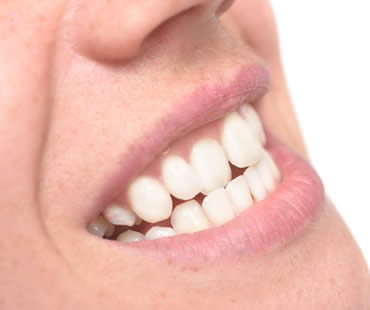
Life can be full of frustrations, demands, deadlines, and inconveniences. For lots of people, stress is a way of life. The problem is that when you’re constantly stressed out, your health can pay the price. There are many health conditions that are caused or worsen due to high stress levels, but did you know that your mouth may be affected in the form of teeth grinding?
What is teeth grinding?
The condition of grinding or gnashing your teeth together is called bruxism, and often includes clenching your jaw. It commonly happens while sleeping, so that you may not even realize you’re doing it. Sometimes a sleeping partner hears it, or your dentist may recognize the signs of unusual wear on your teeth.
What does my stress level have to do with it?
Teeth grinding has been linked to stress and anxiety. Studies have shown that people who are stressed from daily life and don’t have adequate coping methods are more likely to grind their teeth. Experts say that both adults and children facing stress sometimes cope by grinding their teeth.
How does teeth grinding affect me?
Grinding your teeth has more negative effects than you might think. It often causes headaches, earaches, and sleep problems. It can cause chipped, loose, cracked, or sensitive teeth. Tooth enamel can suffer excessive wear, and gum tissue may be damaged. Teeth grinding also often causes a painful jaw disorder of the temporomadibular joint, commonly called TMJ.
What can I do about it?
Your dentist may recommend wearing an over-the-counter or custom mouthguard at night, to protect your teeth from further damage. Medications usually are not helpful, although a muscle relaxant before bed may help prevent jaw clenching. The ideal treatment is to try to reduce or eliminate stress that may be contributing to your teeth grinding. Relaxation therapy, stress management, corrective exercises, and counseling are some of the options that dentists suggest to help you remedy the problem.
If you need a dentist in Meriden contact us today














